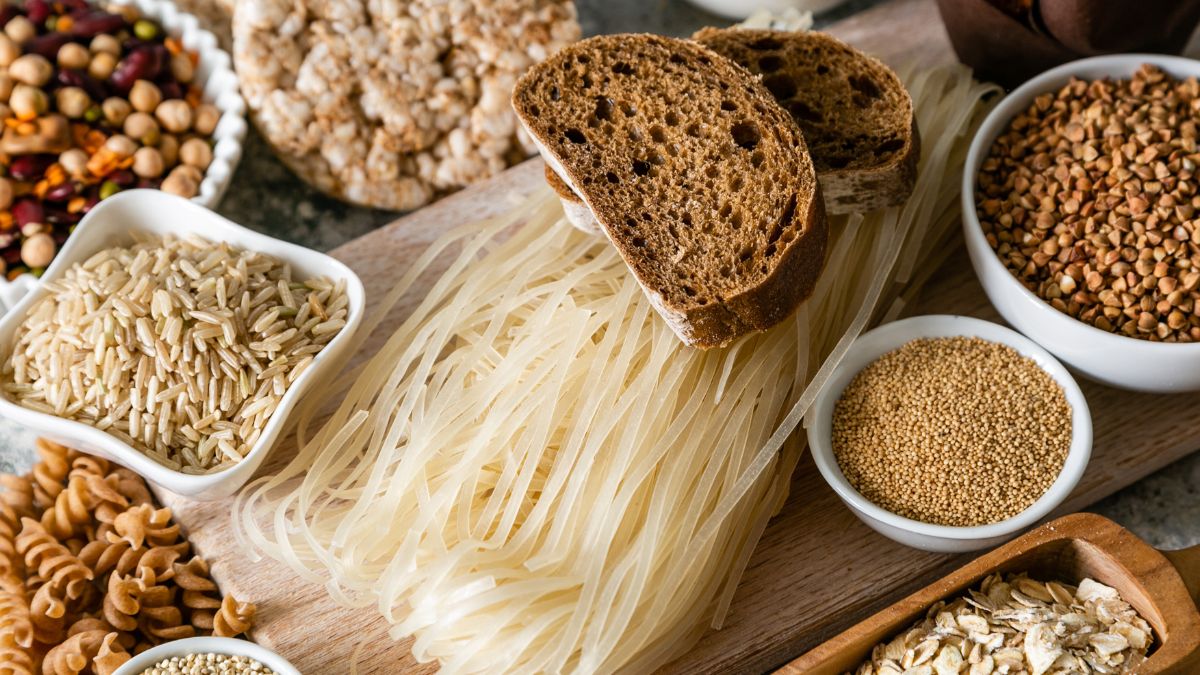- By Priyanka Munshi
- Fri, 06 Sep 2024 05:06 PM (IST)
- Source:JND
Gluten, found in wheat, barley, and rye, triggers an immune response in people with celiac disease, damaging the small intestine and impairing the absorption of essential nutrients. Understanding the complexities of celiac disease during pregnancy is crucial to safeguarding the health of both the mother and the developing baby. For pregnant women with celiac disease, maintaining a strict gluten-free diet is vital, as any unintentional gluten consumption can lead to nutrient deficiencies, including iron, folic acid, calcium, and vitamin D.
These nutrients are especially important for the healthy growth and development of the fetus during pregnancy and for preventing birth defects such as neural tube anomalies. Poorly managed or undiagnosed celiac disease can lead to complications like miscarriage, low birth weight, and preterm birth. Therefore, women with celiac disease or those who suspect they may have it should work closely with their healthcare providers to assess their nutritional status, manage their diet, and ensure they receive all necessary prenatal care.
-1725622327340.jpg)
Gluten, found in wheat, barley, and rye, triggers an immune response in people with celiac disease, damaging the small intestine and impairing nutrient absorption.(Image Credit: Canva)
This preventive approach not only protects the mother's health but also ensures that the baby has the best start in life, avoiding complications associated with untreated celiac disease. In a conversation with Jagran English, Dr. Deepika Aggarwal, Director of Obstetrics and Gynecology at CK Birla Hospital in Gurugram, discussed celiac disease and pregnancy, highlighting key considerations for expecting mothers.
According to Dr. Deepika, celiac disease is an autoimmune disorder where the body's immune system reacts negatively to gluten, a protein found in wheat, barley, and rye. This reaction damages the lining of the small intestine, leading to various health concerns. During pregnancy, celiac disease can pose specific complications if not properly managed.
Here Are A Few Complications Every Expecting Mother Should Be Aware Of:
- Preterm Birth: Babies may be born earlier than expected.
- Low Birth Weight: Babies might weigh less than normal at birth.
- Growth Restrictions: The baby might not grow as expected in the womb.
- Maternal Anemia: The mother may have low levels of red blood cells due to poor nutrient absorption.
- Osteoporosis Risk: The mother may have weakened bones if nutrients like calcium are not properly absorbed.

These Complications Can Be Prevented By Taking The Following Steps:
- Following A Gluten-Free Diet: Avoid all foods containing wheat, barley, and rye to prevent symptoms and protect your intestine and your baby.
- Pre-conception Planning: Meet with your healthcare provider before getting pregnant to address any health issues related to celiac disease.
- Consulting A Dietitian: Work with a dietitian who specializes in celiac disease to ensure you’re getting all the necessary nutrients.
- Regular Medical Check-Ups: Visit your healthcare provider frequently to monitor your health and ensure your diet is effective.
- Supplements As Needed: If you have any nutritional deficiencies, your doctor might recommend supplements, especially for folic acid, iron, vitamin B12, calcium, zinc, and magnesium.
Dr. Deepika concluded, "By adhering to a strict gluten-free diet and seeking regular medical advice, you can help ensure a healthier pregnancy for both you and your baby. Additionally, post-pregnancy, be vigilant for symptoms of celiac disease in your baby, as it is a genetically transmitted condition."

